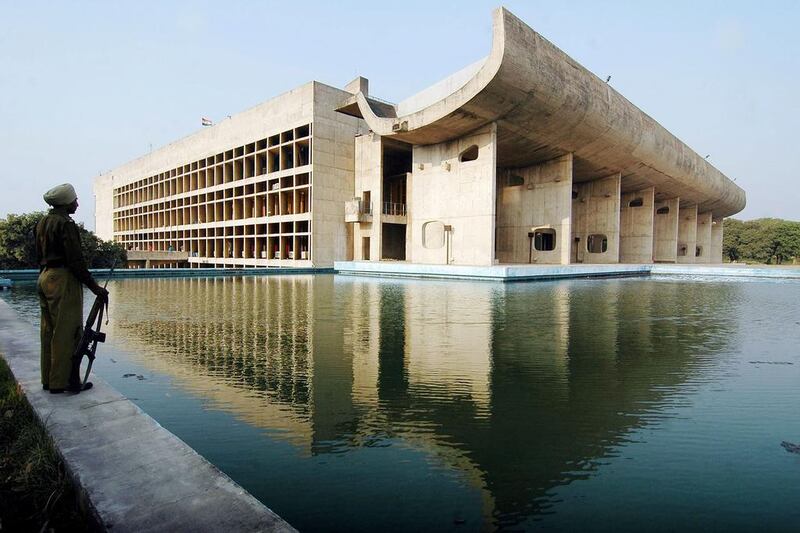‘We are fortunate to be born and living here,” commented my father, as we walked between the golden stalks of wheat in our fields. “You scatter a handful of the seeds of any crop into this earth and within a few weeks, green shoots spring from the soil, whether you water it or not.”
This was in 1933, when I was with my father on his annual visit to his fields near Harappa. The journey from my home in Tandlianwala to Harappa (both then in undivided Punjab, in British India), through lush green fields, partly on horseback, always fascinated me at the tender age of 12.
Punjab, the land of five rivers, had ample irrigation, hence the fertile soil. Wheat, rice, maize and sugar cane grew plentifully. The hard-working farmers toiled on their lands to produce crops, fruits and vegetables that fed many neighbouring states. Agrarian prosperity made the Punjabis a fun-loving community.
Partition killed that joyous state, after which I could never visit my home in Tandlianwala. I lived in Amritsar, Ludhiana, Delhi and Mumbai over the years, trying to piece my life together after the horror of partition, when my family and I were rendered penniless orphans and refugees. Later my work often took me on nostalgic trips to various towns in Punjab including Chandigarh, the elegant, manicured township planned by the Swiss-French architect Le Corbusier.
Though partition had scorched Punjab’s soul, the Punjabis managed to salvage their energy, enterprise and their ability to rebound. Soon the lands of Punjab poured forth more wheat and rice to feed the people of India. Nature was generous and endowed Punjab with ample sunshine and rain when the crops needed these bounties. The melodious “Gurbanis” (sacred hymns) emanating from the Golden Temple shrine in Amritsar were always soothing for the soul.
Punjab contributed a president, a prime minister and various ministers to India’s federal government. It also sent some of the finest soldiers and officers to the army, navy and air force, who rose to head these services. They won numerous awards for gallantry and valour in battles. Punjab is also home to many who have achieved national recognition.
Over the decades Punjabis danced the “bhangra” with gusto and relished devouring their tikkas, kebabs and parathas. Punjabi cuisine became synonymous with Indian cuisine. Tandoori chicken and onion bhaji are now standard fare in Indian restaurants all around the world.
Yet the Punjabis continued to be a simple and warm community. The principal delight of a Punjabi family is to bask in the winter sun, in the ample veranda of a home and chew on fresh sugar-cane from the fields or polish off a Punjabi meal of “sarson-da-saag” (mustard leaves curry) and “makai roti” (maize flour bread).
So, recently, when the movie Udta Punjab highlighted that a drug menace had gripped the youth of Punjab in the towns and villages, my heart bled. This is not the Punjab I had known as a child in school in Lyallpur (now Faisalabad) or in my youth in Lahore or Amritsar.
I spent many miserable sleepless nights wondering why drugs had become commonplace. Perhaps youngsters had turned to indolence, due to the affluence resulting from the swift rise in prices of land and crops. When there is ample prosperity at home, the will to work erodes.
The Punjab that lives within me, is the state made famous by Sardar Milkha Singh who was the fastest sprinter in India. He brought pride to Punjab and India garnering laurels at the Commonwealth and Asian games. Christened as the “Flying Sikh”, he is the Punjabi who enshrines Punjab for me.
My Punjab was a state where I first heard Netaji Subhas Chandra Bose give the call for the freedom of India. It was the state that wrestled to put behind the wounds of partition in 1947, forgot the bloodshed and moved on to build prosperity.
So I hope once more Punjab will tussle with drug-abuse gallantly to dismember this bizarre chapter and regain its erstwhile glory.
Hari Chand Aneja is a 95-year-old former corporate executive who now keeps busy with charity work





